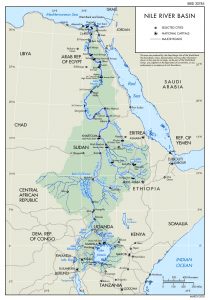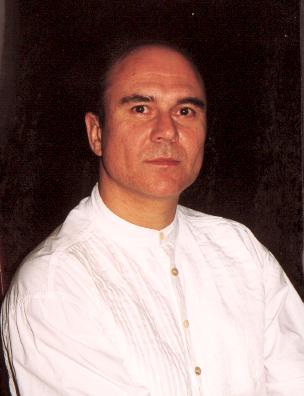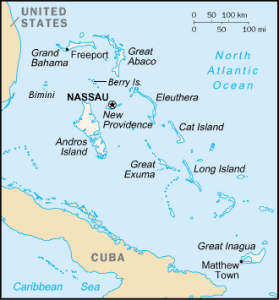Orion Correlation Theory
Orion Correlation Theory (OCT)
The Orion Correlation Theory (OCT) is defined by Wikipedia as the idea “that there is a correlation between the location of the three largest pyramids of the Giza pyramid complex and Orion’s Belt of the constellation Orion, and that this correlation was intended as such by the original builders of the Giza pyramid complex.”
Robert Bauval is probably best known as the original promoter of the Orion Correlation Theory (OCT), which received widespread coverage when it was outlined in The Orion Mystery [1707] written by Bauval and Adrian Gilbert and in Keeper of Genesis [1050] written with Graham Hancock, published two years later. Bauval first published his theory in 1989 in Discussions in Egyptology(a).
Not unexpectedly, OCT generated considerable criticism as well as support, also noted on Wikipedia(g).
However, Andrew Collins has disputed the OCT and has instead offered evidence that the alignment of the three principal Giza pyramids matches more closely the ‘wing’ stars of the Cygnus constellation than the ‘belt’ of Orion!(b)
Gary A. David has expanded on the OCT of Bauval & Gilbert identifying important sites throughout Egypt that he believes constituted a more extensive reference with other heavenly bodies in what he calls the Egyptian Stellar Template(e).
David goes further and claims that he “stumbled across an Orion Correlation that the ancestral Hopi Indians constructed in Arizona from about 1050–1300 AD. In this case, every major star in the constellation corresponds to a specific masonry village site. The terrestrial replication of the celestial pattern is simply uncanny.”(f)
However, Freddy Silva has imaginatively proposed an additional OCT – in Scotland(c). He suggested that the Pyramids of Giza, and by extension, Orion’s Belt matched the layout of the three stone circles of Stenness, Brodgar and Bookan!
February 2015 saw an even more extreme idea published by Emilio Spedicato in a paper(h) with the radical proposal that the alignment of the three main Giza pyramids was not intended to be a reflection of the three stars in Orion’s belt according to the OCT, as proposed by Gilbert and Bauval, but instead were more closely matched to the arrangement of three volcanoes on Mars! He claims that these volcanoes were visible from Earth during Mars’ periodic close encounters with our planet between 7000 BC and 700 BC, during a 54-year cycle!
(a) Discussions in Egyptology, volume 13, 1989, pp. 7-18
(b) (99+) (PDF) Orion: The Eternal Rise of the Sky Hunter | Andrew Collins – Academia.edu
(c) Scotland’s Hidden Sacred Past – Graham Hancock Official Website
(d) http://www.migration-diffusion.info/article.php?year=2015&id=453
(e) https://www.academia.edu/8635347/The_Blazing_Star_of_the_Nile_Egyptian_Stellar_Template
(f) (99+) (PDF) Orion’s Global Legacy—A Celestial Plan | Gary David – Academia.edu
(h) https://www.q-mag.org/the-pyramids-of-giza-the-belt-of-orion-and-three-volcanoes-on-mars.html
Nile River *
 The River Nile was considered the longest river in the world, a title now disputed by the Amazon.(a) More important was the part it played in the development of pharoanic Egypt. Understandably, it also played a part in the mythology and religion of ancient Egypt.
The River Nile was considered the longest river in the world, a title now disputed by the Amazon.(a) More important was the part it played in the development of pharoanic Egypt. Understandably, it also played a part in the mythology and religion of ancient Egypt.
In 2019 a paper(d) by Larry Pahl, who looked again at the Orion Correlation Theory and concluded that Robert Bauval should not have confined his theory to Orion’s ‘belt’, but looked at the entire constellation and sought a more extensive reflection on the monuments of ancient Egypt. Prahl then proceeds to do exactly that.
Similarly, Jean-Pierre Lacroix claimed that other Egyptian structures may have been located to reflect the layout of other constellations in the sky. Specifically, he focuses on Aries and Thebes(e) .
Alessandro Berio went further with the claim(f) that the entire Nile was ‘designed’ to be a reflection of the constellations above!
Philip Coppens commenting on how the Incas viewed the valley of Cusco wrote “Modern research suggests that the Sacred Valley of the Vilcamayu and Urubamba rivers symbolised the Milky Way. Identifying rivers with constellations, specifically the Milky Way, is nothing new. Other examples are the Nile, as well as the Po in Italy and the Rhône in France.”(b)
Derek Cunningham claims to have discovered(c) that there is an association between the layout of the Stonehenge complex with the Milky Way!
(a) Nile – Wikipedia
(b) Viracocha’s voyage – Eye Of The Psychic
(c) https://atlantipedia.ie/samples/archive-3055/
(d) https://www.academia.edu/41868838/Expanding_the_Orion_Correlation_Theory_OCT_
David, Gary, A.
Gary A. David is an independent American researcher and author dealing with archaeological ruins and rock art of the American Southwest. His focus is on the Hopi tribe of northern Arizona and its archaeo-astronomy. Although he has not written directly about Atlantis, he has contributed a number of interesting papers relating to subjects peripheral to our study here. Most of these are available on the Academia.edu website(a).
David has also written about the Orion Correlation Theory (OCT) of Bauval & Gilbert, which claims that the alignment of the three stars in Orion’s ‘belt’ is reflected in the layout of the three principal pyramids at Giza.
David has expanded on the OCT of Bauval & Gilbert identifying important sites throughout Egypt that he believes constituted a more extensive reference with other heavenly bodies in what he calls the Egyptian Stellar Template(e).
He goes further and claims that he “stumbled across an Orion Correlation that the ancestral Hopi Indians constructed in Arizona from about 1050–1300 AD. In this case, every major star in the constellation corresponds to a specific masonry village site. The terrestrial replication of the celestial pattern is simply uncanny.” (b)
David has published an informative paper(c) on the Maltese Cross and its variants as found around the world. He pointed out its use in the Americas by the ancient Olmecs and has laid great emphasis on its place in the inherited culture of the Hopi people.
>David has also proposed that Votan was a diffusionist deity with counterparts known by other names such as Kukulkan, Quetzalcoatl or Viracocha in different pre-Columbian American civilisations. However, he goes further placing Votan’s origins in the Old World suggesting that he may have been Phoenician or Hebrew, citing Adrian Gilbert and Andrew Collins in support of this(f).<
Additionally, he has also highlighted the use of the swastika in a more benign way by the Hopi of northern Arizona along with its innocent use in other cultures including the Minoans, as well as in 20th century USA(d).
(a) https://colorado.academia.edu/GaryADavid
(b) (99+) (PDF) Orion’s Global Legacy—A Celestial Plan | Gary David – Academia.edu
(c) https://www.academia.edu/8661701/The_Maltese_Cross_Hopi_Indian_Version_of_a_Knights_Templar_Symbol
(d) https://www.academia.edu/8661508/The_Four_Arms_of_Destiny_Swastikas_in_the_Hopi_World_and_Beyond
(e) https://www.academia.edu/8635347/The_Blazing_Star_of_the_Nile_Egyptian_Stellar_Template
Lawton, Ian *
 Ian Lawton (1959- ) is an English researcher focused on ancient history and spiritual philosophy. He is probably best known as the co-author with Chris Ogilvie-Herald of Giza: The Truth [1690], which offers a sober forensic review of all the many and widely varied theories relating to the ancient structures on the Giza Plateau. In it, Lawton was highly critical of Robert Bauval‘s Orion Correlation Theory (OCT) both in the book (chapter 9)(d) and in open correspondence between them.
Ian Lawton (1959- ) is an English researcher focused on ancient history and spiritual philosophy. He is probably best known as the co-author with Chris Ogilvie-Herald of Giza: The Truth [1690], which offers a sober forensic review of all the many and widely varied theories relating to the ancient structures on the Giza Plateau. In it, Lawton was highly critical of Robert Bauval‘s Orion Correlation Theory (OCT) both in the book (chapter 9)(d) and in open correspondence between them.
However, Lawton was at the receiving end of criticism from the late John Anthony West in 2000, when West published an article in Atlantis Rising magazine that ended with a scornful “The point is that the facile assurances given by Ogilvie-Herald/Lawton endorsing the orthodox view are illegitimate, their exclusion of contrary, genuinely informed opinion is typical of their selective bogus scholarship, and their long-winded acoustic levitation hypothesis is pure speculation and self-contradictory besides. We still don’t know how the pyramids were built/ Period. Full stop.”(e)
Two years later Ogilvie-Herald co-authored Tutankhamun [1898] with Andrew Collins.
Lawton has also been highly critical of the claims of the late Zechariah Sitchin(b) and his book Mesopotamia: The Truth [1751], he returns to the subject.
Lawton’s second book, Genesis Unveiled [1691], has been described as containing “remarkable new insights into the spirituality of the pre-flood human race”. Chapter 13 takes a somewhat generous view of Blavatsky and Theosophy(c).
He subsequently made changes(a) to the content and, in my opinion, opportunistically re-titled it as Atlantis: The Truth! In it Lawton has focused on prediluvian races, citing, with reservations, the work of Stephen Oppenheimer, Arysio dos Santos and Frank Joseph, which when added to Lawton’s research, he concludes that “it’s nevertheless interesting that all four of us have independently arrived at the same conclusion about the broad whereabouts of any forgotten race.” He argues that the location of such a race was in the general region of Sunda and Sahul Shelves.
(a) Atlantis: The Truth | Ian Lawton (archive.org) *
(b) Mesopotamia: The Truth | Ian Lawton (archive.org) *
(c) Atlantis: The Truth | Ian Lawton (archive.org) *
(d) Giza the Truth | Ian Lawton | Chris Ogilvie-Herald (archive.org) *
(e) Atlantis Rising magazine #23 http://www.pdfarchive.info/index.php?pages/At
Spedicato, Emilio *
Emilio Spedicato (1945- ) was born in Milan. He graduated in physics and is now working in numerical analysis and applied mathematics. He has held a full professorship at Bergamo University since 1984. In addition to his more conventional academic  pursuits, he also researches ‘non-standard models of planetary evolution and non-standard interpretation of myth and ancient religions.’
pursuits, he also researches ‘non-standard models of planetary evolution and non-standard interpretation of myth and ancient religions.’
Spedicato has developed a list(a) of ‘54 theses for reconstructing Earth and human history during the catastrophic period 9500 to 700 BC’(l). This list is partly based on the work of Velikovsky, DeGrazia and Ackerman and is intended to be the basis of a larger work in book form. Some of his ideas will be seen as highly controversial such as the genetic manipulation of humans by extraterrestrial visitors. He locates the Garden of Eden and the ‘creation’ of Adam and Eve in the Hunza valley of modern Pakistan(e).
He ventured into further controversial territory with his support for an updated version of Hörbiger’s moon capture theory(f) and endorsement for pole shifts(g)(0) after long periods of stability following encounters with large extraterrestrial bodies. He considers the last of these to have taken place in the 10th millennium BC.
Spedicato, in a series of papers delivered to the Atlantis Conference on Melos in 2005, linked the biblical Exodus with the Flood of Deucalion, which he dates as 1447 BC(d). He contended that these events were connected with the explosion of a large extraterrestrial body over Southern Denmark remembered in Greek tradition as Phaëton. He also claims that a large object impacted or exploded over the Great Lakes ice cover around 10.900 BC(k).
Atlantis has not escaped Spedicato’s attention and he has put forward the Caribbean island of Hispaniola as the home of Atlantis(b), specifically suggesting that Lake Enriquillo in the Cul-de-Sac Depression, which runs from Haiti across the border into the Dominican Republic. Spedicato accepts the possibility of the destruction of Atlantis around 9600 BC and has written an interesting paper(c) that links the demise of Atlantis with a direct asteroidal impact or a close encounter with a planet-sized body. Not without significance is the fact that Hispaniola is not submerged, in spite of the sea level rising hundreds of feet since the very early date proposed by Spedicato for the destruction of Atlantis, which should have sent it even deeper beneath the waves of the Caribbean.
In his paper entitled Was Atlantis in Hispaniola? Arguments in Favour(n) he outlines his belief that “the Atlantis civilisation developed during the terminal phase of the last great glaciation. It was terminated by a catastrophe, of extraterrestrial origin, which led to the now confirmed fast melting of most ices covering North America (north of a line from Seattle to Washington) and northern Europe; this event is now rather precisely dated at circa 9500 BC. He also considers Plato’s ‘muddy shoals’ to be a reference to the Sargasso Sea.
Furthermore, leaving aside the question of submergence altogether, Spedicato does not explain how an Atlantis in the Caribbean could, in 9600 BC, have attacked Greece or Egypt, which did not exist as structured societies at that time.
Even more intriguing is why they would plan such a venture, considering a distance of 10,000 kilometres lay between them.
Spedicato has contributed at least a dozen papers to the Migration and Diffusion website including one on a possible Indian inspiration behind the Giza pyramid complex(h) as well as a paper(i) on the planet known to the Sumerians as Nibiru and today sometimes referred to as Planet X. He controversially claims that a close encounter with Nibiru around 9500 BC ended the last Ice Age and brought about the demise of Atlantis! A difficulty with that idea, is that if the encounter with Nibiru destroyed Atlantis AND ended the Ice Age how could the location where Atlantis was submerged still be marked by mud shoals 9,000 years later when sea levels had risen by 300-400 feet, as confirmed by Plato in Timeaus 25d?
Another radical idea put forward by Spedicato was expressed in a paper delivered to the 2005 Atlantis Conference [629.411], in which he claimed that what he called ‘the ancestors of the Greeks’ had visited Canada. Based on his interpretation of excerpts from the writings of Plutarch, he specifies a region at the mouth of the St. Lawrence River as the point of contact. Manolis Koutlis goes further, suggesting that the Greeks had colonies there, from 1500 BC until 1500 AD. Then in his book In the Shadow [1617] he adds the even more extraordinary claim that Atlantis had been situated on an island at the entrance to the St. Lawrence!
In 2010, Spedicato published Atlantide e L’Esodo (Atlantis and Exodus) which is currently being translated into English.
In February 2015, Spedicato published another paper(j) with the radical proposal that the alignment of the three main Giza pyramids was not intended to be a reflection of the three stars in Orion’s belt according to the Orion Correlation Theory (OCT), as proposed by Gilbert & Bauval[326], but instead were more closely matched to the arrangement of three volcanoes on Mars! He claims that these volcanoes were visible from Earth during Mars periodic close encounters with our planet between 7000 BC and 700 BC, during a 54-year cycle. However, Andrew Collins has also disputed the OCT and has instead offered evidence that the alignment of the three principal Giza pyramids matches more closely the ‘wing’ stars of the Cygnus constellation than the ‘belt’ of Orion! (m).
Later in 2015, the prolific Spedicato published another paper(k) in which he linked Mayan catastrophes with those of Hesiod, Plato and the Bible.
(a) http://www.cartesio-episteme.net/ep8/ep8-spedic.htm
(b) https://www.academia.edu/10973532/ATLANTIS_IN_HISPANIOLA
(c) Wayback Machine (archive.org) *
(d) https://www.2008-paris-conference.org/mapage13/deucalione-testo-inglese-1-.pdf
(f) https://aisberg.unibg.it/bitstream/10446/316/1/WPMateRi05(2008)SpedicatoPetruzzi.pdf
(g) https://www.unibg.it/dati/bacheca/63/21825.pdf
(h) https://www.migration-diffusion.info/article.php?id=353
(i) https://www.migration-diffusion.info/article.php?id=351
(j) https://www.migration-diffusion.info/article.php?year=2015&id=453
(m) (99+) (PDF) Orion: The Eternal Rise of the Sky Hunter | Andrew Collins – Academia.edu
Collins, Andrew
 Andrew Collins was born in England in 1957. Several of his earlier books are concerned with psychic questing(v). However, he eventually shifted his focus to a study of alternative history.
Andrew Collins was born in England in 1957. Several of his earlier books are concerned with psychic questing(v). However, he eventually shifted his focus to a study of alternative history.
Over the past twenty years, he has been investigating the possible existence of ancient advanced civilisations. He has written three books on the subject of pre-history [072][073][074]. His volume on Atlantis has been well received as an example of how the subject should be researched. Although Collins initially thought that Antarctica had been home to Atlantis, he eventually concluded that Cuba was its location and provided a wealth of evidence to support this view in his book, Gateway to Atlantis. David Rohl wrote a sympathetic Introduction for the book and repeated and expanded on his expressed views at a subsequent lecture(h).
What did surprise Collins, was that following the publication of his carefully-argued ‘Gateway’ was that most responses to his book indicated that the dominant theory regarding the location of Atlantis favoured Antarctica!(ac)
Collins also wrote of why his chosen Cuba is a better candidate for the location of Atlantis than the Bahamas(r). He seems to have been reluctant to exclude the Bahamas completely from the Atlantis story. In an article in Atlantis Rising magazine(z), he commented “There is no question that if the Bahamian landmass did once support a prehistoric culture, then it was also present on Cuba as well”.
Collins has recently written another controversial book[075], on the place of the constellation Cygnus in prehistoric consciousness. Arising from this study, it appears that the position of the Cygnus stars correlates more accurately with the Giza pyramids than those of Orion, which was proposed some years ago by Robert Bauval. Incredibly, a fifteen-year-old Canadian boy has produced a comparable theory(e) involving Mayan cities and a star map. The site proposed by him has now been identified, by people who personally know the location, as either an abandoned cornfield or a marijuana crop(f).
In 2018, Gustavo Muniz posted a number of videos on YouTube suggesting an Orion connection with a site in the Amazon Basin(i)! His ideas were developed into a book, Orion: The Connection between Heaven and Earth [2082].
However, Collins has not been completely seduced by Bauval’s discovery and prudently remarks that the correlation may just be a coincidence. Jason Colavito has written a brief critique(b) of this book.
In 2002 Collins teamed up with Chris Ogilvie-Herald to write Tutankhamun [1898]. It is a great read involving as it does, unexplained deaths, political intrigue and possible blackmail. Howard Carter and Lord Carnarvon are also accused of looting some of the treasures from Tutankhamun’s tomb. However, for me, the core weakness in this book is that it is dependent on a claim that the plunder taken by Carter and Carnavon had included papyrus documents, the contents of which allegedly contained material that was still deemed politically sensitive even three thousand years later! Without the papyrus, there is no book.
In 2007, he wrote an article(q) for Alternate Perceptions Magazine reviewing the comet impact theory of Richard Firestone et al and its possible implication for his Atlantis theory.
In 2005, Collins published The Cygnus Mystery [075] in which he explored the significance of the Cygnus constellation in the ancient cultures of America, Egypt and Britain. (a condensed version of the book is available online(s)). Furthermore, in August 2013 he published a paper(c) with Rodney Hale suggesting that the Göbekli Tepe site is probably aligned with the star Deneb in the Cygnus constellation. This idea has now been expanded on in Collins’ 2014 book, Göbekli Tepe: Genesis of the Gods[0983], although his treatment has been heavily criticised as pseudoscience(g).
In a recent paper(t), Andrew Collins disputed Bauval‘s Orion Correlation Theory and instead offered evidence that the alignment of the three principal Giza pyramids matches more closely the ‘wing’ stars of the Cygnus constellation than the ‘belt’ of Orion! Greg Little offered some rather lukewarm support for Collins’ alternative to the OCT(u).
Nevertheless, Little & Collins teamed up as co-authors of Denisovan Origins [1672] in 2019, a literary bromance that has led to another joint offering, Origins of the Gods due for publication in 2022, in which the authors explore “how our ancestors used shamanic rituals at sacred sites to create portals for communication with non-human intelligences”. If that does not sufficiently whet your appetite, the news that the well-known convicted fraudster Erich von Däniken has written the Foreword should clinch it for you.>>Collins & Little offer some lnteresting background to ‘Origins’ in an article on Graham Hancock’s website(ag).<<
Collins has made some dramatic claims regarding the significance of Cygnus including the proposal that “The veneration of Cygnus as a bird associated with cosmic life and death goes back 17,000 years to when the constellation occupied pole position in the northern night sky” and perhaps even more extreme, the idea that “Cygnus is at the root of all the world’s religions.”
Collins continues with the Cygnus-Giza connection in a subsequent offering Beneath the Pyramids[631]. This book reveals the tunnels and chambers beneath the Giza pyramids and their possible connection with the “Hall of Records” predicted by Edgar Cayce to be located there and due for discovery.
In a paper(d), co-authored with Rodney Hale, published in April 2016, Collins returned to the theory of a Cygnus-Giza correlation based on a master plan that they claim can now be demonstrated mathematically.
Collins has now moved on to new ground with his Lightquest[895], in which he attempts to offer a new explanation for the UFO phenomena. He claims that what has been described as UFOs are “the product of sentient light forms and light intelligences that co-exist with humanity, and have done so since time immemorial.”
Nevertheless, Collins returns to the subject of Atlantis with a new book, Atlantis in the Caribbean[1197], which is a revised version of Gateway to Atlantis. In it, he follows some of Otto Muck’s ideas and “Explains how Atlantis was destroyed by a comet, the same comet that formed the mysterious Carolina Bays“.
Collins, who proposes Cuba as one of the legendary Hesperides and also the location of Atlantis, has offered a critical response to Emilio Spedicato‘s Hispaniola theory in both Gateway to Atlantis and its revised version Atlantis in the Caribbean, which can be read online(ad).
When the Denisovans were recently identified as an extinct species of hominid, related to the Neanderthals It did not take long for speculative history enthusiasts to jump on board this new bandwagon. Andrew Collins has now published The Cygnus Key[1509], in which he claims to present “compelling evidence showing that the earliest origins of human culture, religion, and technology derive from the Denisovans, the true creators of the lost civilization long known to exist but never before proved.” Jason Colavito also presents a critique of this latest ‘Cygnus’ book in a two-part(m)(n) offering.
While the first Denisovan remains were found in Siberia, now there is evidence that they were also the earliest hominins on the Tibetan Plateau(j).
Before the identification of the Denisovans, Colin Wilson had claimed that the Neanderthals “were the civilising force behind Atlantis”![0336] One cannot help wondering if another early hominid species is discovered, which is quite possible, will they also be claimed as the progenitors of Plato’s lost civilisation?
In this new book Collins also “explains how the stars of Cygnus coincided with the turning point of the heavens at the moment the Denisovan legacy was handed to the first human societies in southern Siberia some 45,000 years ago, catalyzing beliefs in swan ancestry and an understanding of Cygnus as the source of cosmic creation.” Hmm.
Collins and chartered engineer, Rodney Hale have studied the Gunung Padang site in Indonesia, which has generated claims of antiquity greater than that of Göbekli Tepe in Turkey. While their investigation raised a number of minor matters, they were unable to endorse the rather extreme dates suggested until more convincing data is available(x).
Collins and Hale have also co-authored a paper on the possible astronomical significance of images on what is known as Pillar 43 or sometimes the ‘Vulture Stone’ at Göbekli Tepe(af). This is not the first such suggestion, but their new interpretation should be considered.
In June 2019, Collins published a two-part article(l) on the Ancient Origins website, in which he explores the possibility of Giza’s Great Pyramid having sound technology incorporated into its construction and that “its Dead-end passage function as an infrasound generator?”
Later in 2019, Collins had his 1996 book, From the Ashes of Angels, banned in Turkey(p), it is not clear yet if he is personally banned as well. Apparently, it all stems from some perceived support that Collins gave to the Kurdish cause in ‘Ashes’! I hope he refrains from mentioning the Armenians. A YouTube video from Collins offers his account of the episode(y).
Collins has seemingly made peace with the Turkish authorities as he is now planning a tour of Karahan Tepe later in 2022(ab). This link has some interesting images.
>>In 2024, Collins published Karahan Tepe [2102], which is a sister site to the better-know Göbekli Tepe. The author “explains how the site’s builders, who created the world’s first post–Ice Age civilization, are remembered in myth and legend as the Watchers and Nephilim of Jewish religious tradition and as the Anunnaki gods of Sumerian mythology” In a critical review of Collins’ book Jason Colavito notes that it contains an amount of material recycled from previous offerings(ah).<<
Andrew Collins maintains a useful website(a) that has plenty of information on his books and lectures. He also offers an extended section relating to his Atlantis theories(o). Nevertheless, he does seem to have retained his interest in metaphysical subjects, which is where he started.
An article on Graham Hancock’s website offers a rebuttal of a series of Collins’ claims(ae).
Collins is now a regular contributor to Ancient Origins. His website lists the articles published there so far(aa).
(b) https://www.jasoncolavito.com/1/post/2012/10/did-cosmic-rays-from-cygnus-create-religion.html
(c) https://www.andrewcollins.com/page/articles/Gobekli_Sirius.htm
(g) Wayback Machine (archive.org)
(h) https://www.andrewcollins.com/page/mysteries/drohl.htm
(i) Gustavo Muniz – YouTube and Bing Videos (Spanish)
(k) https://www.ancient-origins.net/artifacts-other-artifacts/great-pyramid-0012166
(l) https://www.ancient-origins.net/artifacts-other-artifacts/great-pyramid-0012179
(m) https://www.jasoncolavito.com/blog/review-of-the-cygnus-key-by-andrew-collins-part-1
(n) https://www.jasoncolavito.com/blog/review-of-the-cygnus-key-by-andrew-collins-part-2
(o) https://www.andrewcollins.com/page/news/Atlantisfile.htm
(p) https://www.reddit.com/r/kurdistan/comments/d6u3zu/another_attack_to_the_kurds_in_turkey_andrew/
(q) https://andrewcollins.com/page/articles/Firestorm.htm
(r) https://andrewcollins.com/page/interactive/bahamas.htm
(s) The Cygnus Mystery (archive.org)
(t) (99+) (PDF) Orion: The Eternal Rise of the Sky Hunter | Andrew Collins – Academia.edu
(v) Psychic Questing (andrewcollins.com)
(w) Andrew Collins – author – books & DVDs
(x) http://www.andrewcollins.com/page/articles/gp.htm
(y) Andrew Collins Book Ban in Turkey and Abuse at Gobekli Tepe – Bing video
(z) Atlantis Rising magazine #37 http://pdfarchive.info/index.php?pages/At
(aa) http://www.andrewcollins.com/page/articles/AO_articles.htm
(ab) Andrew Collins – Earthquest News – January 2022 (ymlp.com)
(ac) QC2K – Andrew Collins (archive.org)
(ae) http://www.grahamhancock.com/phorum/read.php?f=1&i=122922&t=122922
(af) Göbekli Tepe’s Pillar 43 – The Vulture Stone (andrewcollins.com)
(ah) https://www.jasoncolavito.com/blog/review-of-karahan-tepe-by-andrew-collins *
Andros Island
Andros Island is the largest of the Bahamas Islands, where, since the late 1960s there have been a number of underwater sightings and discoveries that have generated regular speculation that the area is home to remnants of Plato’s Atlantis.
In 1969, two commercial pilots, Robert Brush and Trigg Adams photographed a series of large concentric circles in about three feet  of water off the coast of Andros. Estimates of the diameter of the circles range from 100 to 1,000 feet. Apparently, these rings are now covered by sand. It is hard to understand how such a feature in such very shallow water cannot be physically located and inspected. Richard Wingate in his book[059] estimated the diameter at 1,000 yards. However, the rings described by Wingate were apparently on land, among Andros’ many swamps.
of water off the coast of Andros. Estimates of the diameter of the circles range from 100 to 1,000 feet. Apparently, these rings are now covered by sand. It is hard to understand how such a feature in such very shallow water cannot be physically located and inspected. Richard Wingate in his book[059] estimated the diameter at 1,000 yards. However, the rings described by Wingate were apparently on land, among Andros’ many swamps.
During the 2003 A.R.E. ‘Search for Atlantis Expedition,’ an unexpected three-tiered structure was discovered off Andros near Nicholls Town at the north of the island. It was approximately 150 feet by 450 yards. It was composed of blocks about 25x30x2 feet. Other features were discovered and more searches are planned. The Littles believe that these structures could only have been built around 8000 BC, but if this were true they would be in much deeper water rather than the 10-30 feet reported as the change in sea levels has been some hundreds of feet since 8000 BC. The A.R.E. reports are to be found on their website(a) and in greater detail in a book by the husband and wife team of Gregory & Lora Little[060]. Further investigations were carried out in 2004 and continued for some years.
However, having milked the Bahamian site as far as possible, Greg Little was not prepared to abandon the attention that went with it and has now diversified his interests, such as the Orion versus Cygnus debate regarding the Giza pyramid alignments(b) and co-authored a book with Andrew Collins relating to the Denisovans [1672], a literary bromance that has led to another joint offering, Origins of the Gods due for publication in 2022, in which the authors explore “how our ancestors used shamanic rituals at sacred sites to create portals for communication with non-human intelligences”.
(a) Ancient Mysteries (archive.org)
*
Hopi Indians
The Hopi Indians, currently settled in northeast Arizona, are the descendants of the Anasazi who in turn are believed to have had links to the Aztecs.
Another site associates them with the Maya(b)(c). Several writers have tried to suggest that the Hopi had an early connection with Atlantis employing a highly subjective interpretation of their traditions and flood myths.
Thomas O. Mills, author of The Book Of Truth: A New Perspective on the Hopi Creation Story [1844], offers the intriguing suggestion that there is a link between the Hopi and Egypt’s Valley of the Kings(e). For good measure, Mills has also claimed a Hopi connection with Stonehenge(f). and produced another short book, Stonehenge – If This Was East [1845].
When Robert Bauval & Adrian Gilbert published The Orion Mystery [1707] in 1994, we were happy to follow the ensuing debate on the reality of what became known as the ‘Orion Correlation Theory’ (OCT) and the large pyramids at Giza. Now, the proposed matching of the alignment of the stars in Orion’s ‘belt’ with the pyramids at Giza has been extended to include other structures around the world. Apart from Giza, one site(h) lists the Chinese Xi’an Pyramids, the Teotihuacan Pyramids in Mexico and, unexpectedly three Hopi Mesas!
Gary A. David has endorsed the Hopi alignment, incurring an accusation of dishonesty by Jason Colavito(g).
Others have associated the Hopi with UFOs and the supposed disasters that were due in 2012.
One of the traditional Hopi tales points to a sunken land in the Pacific, Kássara, as their original homeland, which they had to flee as it began to slowly sink(i).
There is now a website(a) dedicated to the Hopi and their petroglyphs as well as a number of other related papers from Gary A. David. In one(j) of which he proposed that the Hopi had their own Orion Correlation tradition displayed over 200 miles on the Colorado Plateau where according to David “either an ancestral Hopi ruin or an inhabited Hopi village directly corresponds to each major star in Orion.” David also returns to Egypt where apart from the Giza OCT, advocated by Bauval and Gilbert, he claims that some of the stones of Nabta Playa also seem to Correlate with Orion citing the work of Thomas Brophy [1510]. Also See: Josef F. Blumrich
(a) https://web.archive.org/web/20180322212308/https://archive.cyark.org/hopi-petroglyph-sites-intro
(d) https://colorado.academia.edu/GaryADavid
(g) https://www.jasoncolavito.com/blog/an-orion-correlation-on-the-hopi-reservation
(h) Archive 6472 | (atlantipedia.ie)*
(i) https://www.ancient-origins.net/human-origins-folklore/k-sskara-sunken-land-hopi-ancestors-009331
(j) https://www.academia.edu/36510961/Orions_Global_Legacy_A_Celestial_Plan

